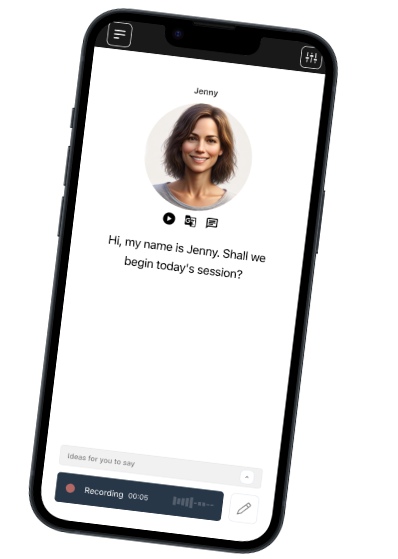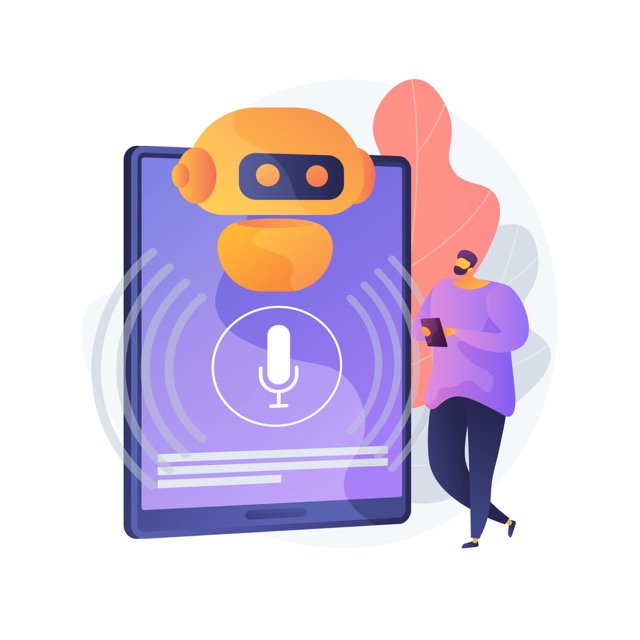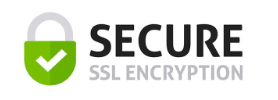Founded in Denmark. We respect your privacy.
Join a worldwide community of language learners
The 5 Best Apps for Learning Languages Effectively: Which One is Right for You?
Last updated on
With so many language learning apps available, choosing the right one can be challenging. Each app offers unique features, from gamified vocabulary lessons to real-life speaking practice, so it’s essential to find the one that aligns best with your language goals. In this article, we’ll compare five of the most effective language learning apps. Whether you’re aiming to build vocabulary, improve pronunciation, or become fluent in conversation, this guide will help you decide which app suits your needs best.
1. Talkio: Best for Realistic Speaking Practice
Overview: Talkio focuses on helping users improve their speaking skills with an interactive AI tutor. Unlike other apps, Talkio provides real-time conversation practice, feedback on pronunciation, and personalized suggestions for improvement, making it a top choice for anyone wanting to sound more natural and confident in English.
Key Features:
- AI Tutor: Talkio’s AI tutor mimics real-life conversation, providing a more realistic and interactive speaking experience.
- Pronunciation Feedback: Real-time feedback on pronunciation, tone, and fluency helps users correct mistakes instantly.
- Customizable Practice: Users can choose topics that interest them, making speaking practice more engaging.
Best For: Learners who prioritize speaking fluency and pronunciation, especially those without easy access to native speakers.
Pros:
- Highly effective for practicing natural conversation.
- AI feedback targets specific pronunciation issues, helping with accents.
- Personalizable topics make practice relevant and engaging.
Cons:
- Works best if you already have a fundamental understanding of the language.
2. Duolingo: Best for Gamified Learning
Overview: Duolingo is one of the most popular language apps, known for its gamified learning experience. It’s great for building basic vocabulary and grammar through interactive exercises, but it lacks extensive speaking practice features.
Key Features:
- Gamified Lessons: Bite-sized, game-like lessons make learning fun and addictive.
- Wide Language Selection: Offers courses in dozens of languages.
Best For: Beginners who enjoy gamified learning and want to build a foundation in a new language.
Pros:
- Fun, easy-to-use interface.
- Good for vocabulary and grammar basics.
- Free with an optional premium upgrade.
Cons:
- Limited speaking practice and conversational AI.
- Not ideal for advanced learners or those focusing on fluency.
3. Babbel: Best for Structured Lessons
Overview: Babbel offers structured lessons with a strong focus on grammar and vocabulary, similar to a traditional language course. While it includes some pronunciation exercises, it doesn’t provide the level of real-time conversation practice available in Talkio.
Key Features:
- Structured Curriculum: Lessons are organized by levels and topics, providing a clear learning path.
- Pronunciation Practice: Some speech recognition exercises to improve pronunciation.
Best For: Learners looking for a structured, course-like approach to language learning.
Pros:
- Comprehensive lessons that cover grammar, vocabulary, and sentence structure.
- Good balance of reading, writing, and listening exercises.
Cons:
- Limited real-world speaking practice.
- Focuses more on grammar than conversational fluency.
4. HelloTalk: Best for Language Exchange
Overview: HelloTalk connects users with native speakers from around the world for language exchange. It’s a great option for learners who want to engage in text and voice chats with real people, though it requires scheduling time and finding the right partners.
Key Features:
- Language Exchange: Connects learners with native speakers for real conversation practice.
- Translation and Correction Tools: Built-in tools help facilitate learning during chats.
Best For: Learners who prefer practicing with real people and exchanging language skills.
Pros:
- Authentic conversations with native speakers.
- Useful tools for correcting and translating messages.
Cons:
- Not structured, so finding reliable partners can be challenging.
- Lacks dedicated speaking and pronunciation feedback.
5. Memrise: Best for Building Vocabulary
Overview: Memrise focuses on helping learners build vocabulary with spaced repetition and flashcards. It also includes some video clips of native speakers, but it doesn’t offer the level of speaking practice found in Talkio.
Key Features:
- Spaced Repetition: Ensures vocabulary retention over time.
- Video Clips: Native speaker videos for a more natural listening experience.
Best For: Vocabulary building and learners who benefit from spaced repetition techniques.
Pros:
- Effective for memorizing vocabulary and phrases.
- Engaging visual and audio elements.
Cons:
- Limited focus on speaking and conversation skills.
- Primarily a vocabulary tool without in-depth conversational practice.
Why Talkio is the Best Choice for Speaking Practice
While each of these apps offers unique benefits, Talkio stands out for learners focused on improving spoken English. Here’s why:
- Realistic Conversation Practice: Unlike flashcards or repetition exercises, Talkio’s AI tutor provides real-time conversation that closely mimics real-world scenarios.
- Immediate Feedback: Talkio’s speech analysis feature gives instant feedback, helping you adjust your pronunciation, tone, and fluency on the spot.
- Flexible and Engaging Topics: With customizable conversation topics, you can practice discussing real-life scenarios and topics you enjoy.
Whether you’re a beginner or looking to refine your fluency, Talkio offers a unique edge in language learning by prioritizing speaking and conversation practice, essential for achieving natural language proficiency.
Conclusion: Choosing the Right Language Learning App for Your Goals
Choosing the best language app depends on your specific needs. For vocabulary, Memrise or Duolingo may be a great start. For structured lessons, Babbel is a solid option. And if you’re eager for real conversations, HelloTalk provides a language exchange platform.
But if speaking fluency and natural pronunciation are your main goals, Talkio offers a unique and effective solution with its interactive AI tutor and personalized feedback. With Talkio, you’re not just learning a language; you’re building confidence to speak it naturally. Give Talkio a try and experience how it can take your English speaking skills to the next level.
Talk Your Way
to Fluency

Talkio is the ultimate language training app that uses AI technology to help you improve your oral language skills!
Try Talkio

